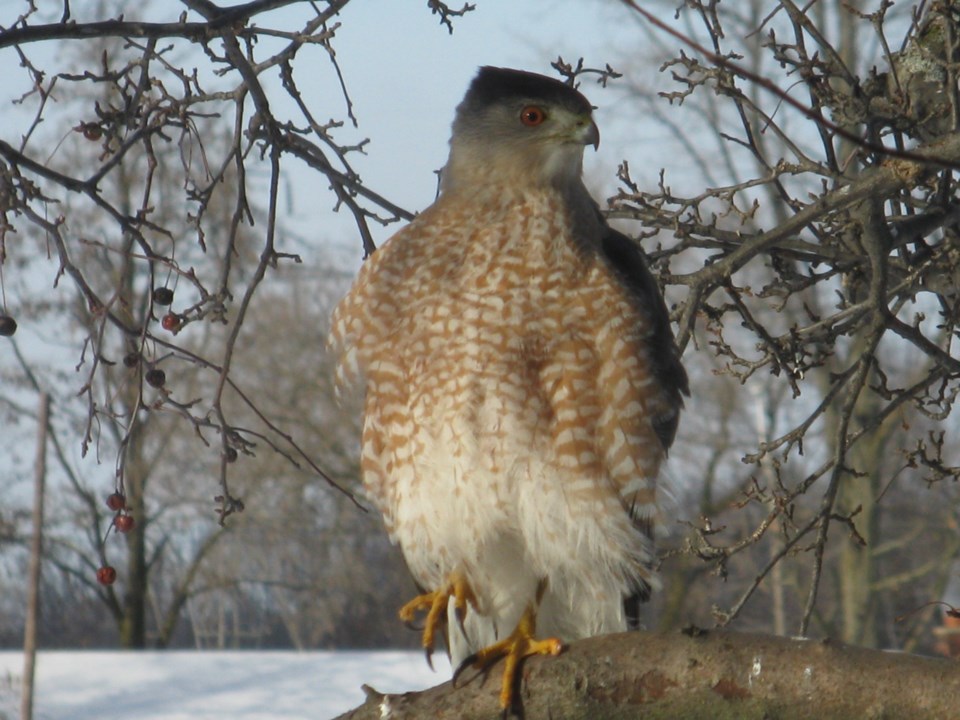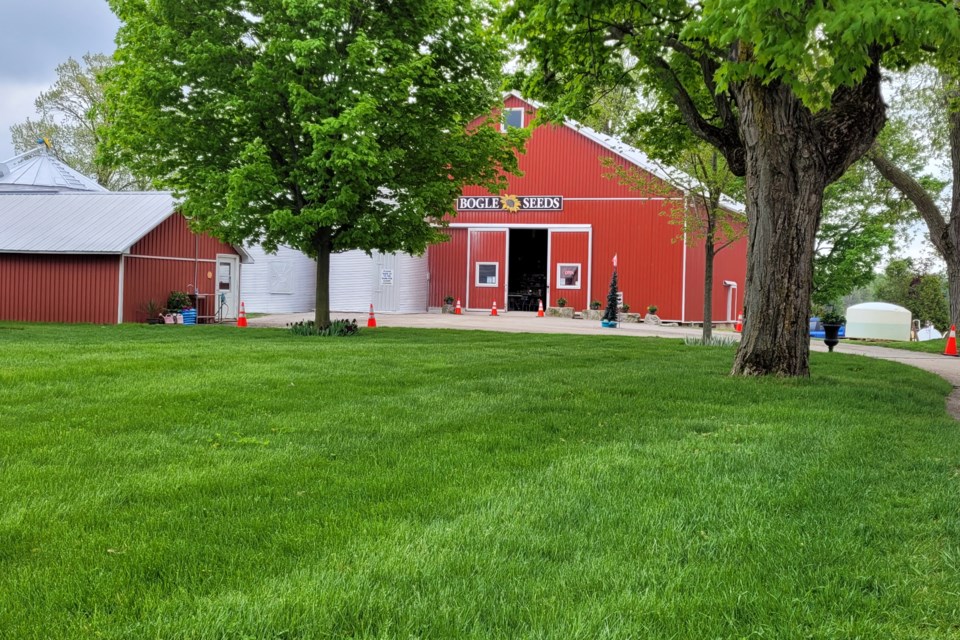Although a number of bird species fly south for the winter, there are still many varieties that stick around during the cold months. Cardinals, woodpeckers, chickadees, blue jays and red-breasted nuthatches are some of the lively and colourful birds that are easy to spot against Ontario's bleak winter landscape.
According to Brad Bogel of Bogel Seeds, one of the best ways to attract birds to your backyard in the winter is to never stop feeding. “When you feed all year round, you get all the birds; you get all the migratory birds too," he says. "You get to see all the different types of species. It takes about two years of consistent feeding for the birds to know that you’re a site for food, but if you do stop feeding, the birds are gone very quickly.
“We recommend feeding the same type of seed you feed all year round. Birds are very smart at knowing which seed they need when they need it.”
Bogel recommends a good generalized mix to attract a multitude of species. Bogel’s sells its Enhanced mix, which has lots of sunflowers, a little bit of millet, and a little bit of corn. Peanuts will entice blue jays and woodpeckers, but avoid roasted or salted nuts; they’re bad for the birds, so stick with raw or blanched. Suet cake feeders are a suitable option in the winter because they won’t melt and will appeal to woodpeckers, starlings, grackles, and blackbirds.

Black oil sunflower seeds are good for everybody, except sparrows; it’s their least favourite food. Niger seeds will attract goldfinches; however, you may not realize it because they lose their brilliant yellow hue in the winter as a defence mechanism.
“They don’t want to be a bright-looking bird in a dead-looking tree. They lose all their colour, and when spring starts to get closer, they start getting their colour back. It’s kind of a cool way of knowing that spring is actually getting closer,” says Bogel.
It’s also really important to provide birds with water during the winter. “Birds need water; they love it in the winter," says Bogel. "If you’re able to get a birdbath heater or heat a birdbath, that’s great too. There are birdbaths that are designed with a built-in heater; they just plug into hydro. There are also retrofitted heaters you can get to put in your birdbaths."
Six generations of the Bogel family have been farming at the Safari Road location since 1874. Today, the farm is operated as a partnership by Barry, his wife Marlene and their son Brad, who grow, process, and sell wild bird seed.
“We grow the majority of what we sell. All the grains get dried before they’re stored. Then, as we need them, they come from the storage tanks, and they go into the barn, where they go through a deep cleaner to remove any foreign material like bits of plant matter," explained Bogel.
The seed then either gets bagged as a pure grain; if they’re going to be mixed with other grains, they go into clean bins where they’re stored. Then they get mixed as they're needed.
"We make small-batch mixes so it’s fresh," notes Bogel. "Birds know when seed’s not fresh.
“I like feeding the birds myself, personally. They’re really amazing to watch. If you feed consistently and long enough, the birds get to know you, and they don’t become that afraid of you. But as soon as a stranger is in your yard, they’re gone; they know.”

